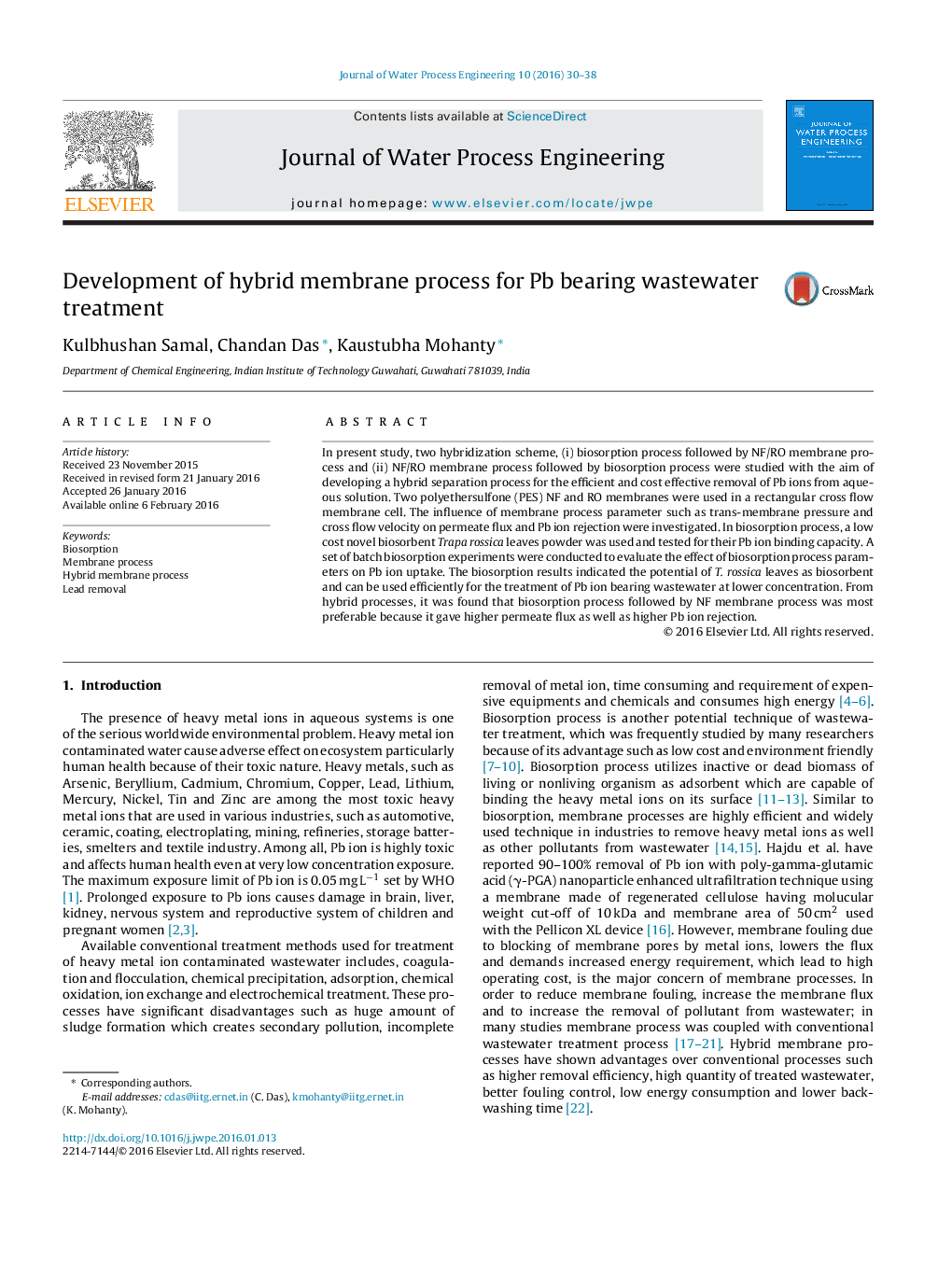| Article ID | Journal | Published Year | Pages | File Type |
|---|---|---|---|---|
| 232447 | Journal of Water Process Engineering | 2016 | 9 Pages |
In present study, two hybridization scheme, (i) biosorption process followed by NF/RO membrane process and (ii) NF/RO membrane process followed by biosorption process were studied with the aim of developing a hybrid separation process for the efficient and cost effective removal of Pb ions from aqueous solution. Two polyethersulfone (PES) NF and RO membranes were used in a rectangular cross flow membrane cell. The influence of membrane process parameter such as trans-membrane pressure and cross flow velocity on permeate flux and Pb ion rejection were investigated. In biosorption process, a low cost novel biosorbent Trapa rossica leaves powder was used and tested for their Pb ion binding capacity. A set of batch biosorption experiments were conducted to evaluate the effect of biosorption process parameters on Pb ion uptake. The biosorption results indicated the potential of T. rossica leaves as biosorbent and can be used efficiently for the treatment of Pb ion bearing wastewater at lower concentration. From hybrid processes, it was found that biosorption process followed by NF membrane process was most preferable because it gave higher permeate flux as well as higher Pb ion rejection.
